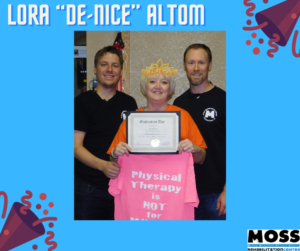Sleep has many benefits to our overall health but why do so many people struggle to get a good night’s sleep.
What can I do to improve my sleep?
That seems to be the million dollar question. In a previous blog I talked about 3 tips you can start doing today to help improve your sleep and recovery. You can read about them HERE.
Today I have more tips to help you get the most out of your sleep which ultimately helps you recover faster and be in a better state of mind.
We all love our cup of joe in the morning.
I spend extra time freshly grinding the beans ( l love the smell in the morning), I weigh the beans and water to get the optimal balance that I like. I also use a pour over method to brew my coffee in the morning as opposed to a Keurig or traditional drip method.
The problem is too many of us (I am guilty as well) continue to drink coffee or other caffeinated beverages late into the day which can drastically affect our internal signals that it is time to sleep.
Caffeine has a 5-8 hour half life, meaning half of the caffeine is still in our system 5-8 hours after we finished our drink. Having that coke or tea at dinner can be one of the reasons you struggle to get a good night’s sleep.
The half life is also affected by our genetic makeup (some process caffeine faster, other slower) so you need to see when the optimal time is for you to cut off caffeine intake.
How it works:
Caffeine works to block a specific neurotransmitter in your brain (adenosine). Normally the longer you are awake the more adenosine builds in your system helping to trigger the natural circadian rhythm which tells you it is time to sleep.
Since caffeine blocks the adenosine receptor it tricks your brain and makes you feel more alert.
When the caffeine wears off, you crash. This is because the adenosine has been building in your brain and once the caffeine clears your system you are hit with a surge of adenosine, triggering the sleepies.
TIP: Select a cut off time in the early afternoon and avoid caffeine after that. Work backward from when you want to go to sleep and subtract 8 hours, this should be a starting point to when you should have your last caffeinated beverage.
Practice this for several days and keep a journal of what you ate or drank, times of day and how you slept that night and felt the next morning.
By journaling these things it will allow you to make small systematic changes to improve your sleep.
Simple ways to improve your sleep you might not have thought about.
Have you ever met someone who could close their eyes in any environment and just fall asleep? Maybe that is you, or maybe you are jealous of that person.
If you are so tired that you just fall asleep as soon as you get still, then that might be a sign that you are not getting quality sleep at night or that you have a serious underlying medical condition.
Assuming you don’t have a serious underlying condition here are some simple tricks to help you get a good night’s sleep.
Give yourself a break from your screen at least 1 hour prior to bedtime.
We are always on our phones. They are designed to give us that hit of dopamine (pleasure hormone) everytime we glance at the screen and get a like or comment. However, looking at the screen too close to bedtime can disrupt our natural circadian rhythm.
Get into a routine
The body and mind like the simple act of routine. By keeping the same (or very close to the same) sleep wake cycle it helps you maintain your circadian rhythm. Yes this goes for the weekend as well.
Chill Out
Your body temperature and heart rate drop during sleep. Give yourself a head start by cooling your bedroom. Research suggests that 65 degrees is the ideal sleeping temperature. (I have found that 73 degrees works really well for me, plus I don’t like the added electricity expense)
Unwind
By staying off of your electronic devices and laying in a cool bedroom you can start to unwind after that hectic day. Simply reading a book or focusing on some deep meditative breathing can help prepare you for a good night’s sleep.
As mentioned before the more you practice and train your body and brain to relax the easier it becomes to enter that state.
Avoid large meals or strenuous exercise late in the day
In my previous post I discussed avoiding foods at least 2 if not 3 hours prior to bedtime, well the same is true for exercise. Having a meal and or exercising prior to bedtime elevates your heart rate and metabolism, both of which need to slow down to get a good night’s sleep.
A light easy walk is one thing, doing high intensity intervals or heavy weight lifting is something else. Take it easy!
What you can do.
If you are not tracking your sleep with a device such as an apple watch or fitbit then I highly recommend it. It makes it easy to see the quantity and quality of your sleep and how incorporating these simple tips can lead to greater improvements.
You can also use your device to see how small adjustments to your caffeine intake and environment affect your sleep.
In summary, start so small that it is impossible to fail.
Keep a journal to track your progress and make small but meaningful changes and you will be on your way to amazing sleep and recovery.
If you would like to learn how we are incorporating these tips with our patients to help them recover quicker then give us a call at 817-220-MOSS (6677).
We love helping everyday people get back to doing the things they love to do.
At MOSS Rehabilitation Center we make it easy for you to get started. We even have a simple 3 step process.
1. Schedule a FREE NO Obligation, Discovery Visit with one of our experts. During this visit, you will talk with one of our friendly experts about your issues. This is a safe and confidential visit, you can trust that your safety and privacy is important to us. We are taking extra measures to ensure that you remain safe during this pandemic.
2. Receive a Customized (Individualized) Treatment Plan. Based on your free discovery visit, we will put together a custom, unique to you plan that will address all of your nagging pains and issues. The goal is to get you back to your healthy self as soon as possible while also addressing your issues for the long term.
3. Get Your Life Back and Do What You Love. The best result for us is a patient who tells us they can finally do what they love without the constant pain, stress, or issue they were facing. Together we can get you back to living life without worry.
So what do the most successful people do when they have health concerns? They address their problem.
I call it the 3 D’s Principle to handling any problem in life: 1. Don’t Ignore it, 2. Don’t Mask It, 3. Do Something About It.
NEXT ACTION: If you are really serious about your recovery start by calling 817-220-6677 today to schedule your FREE NO OBLIGATION Discovery Visit.
To your health,
Dr. Robert Moss PT, ScD, OCS, FAAOMPT


